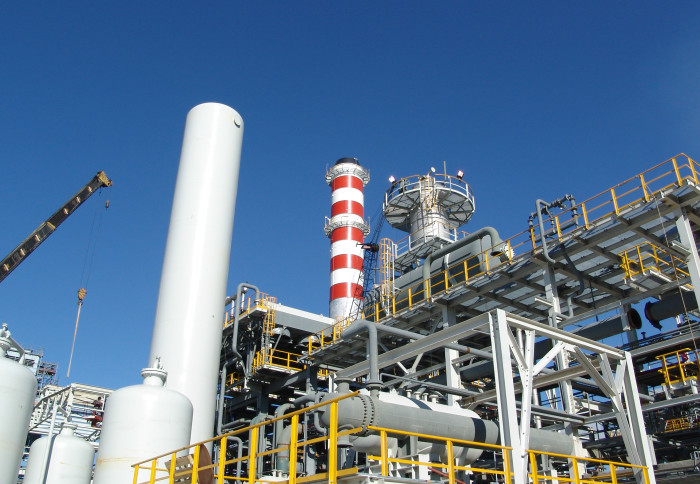Imperial energy experts welcome UK hydrogen strategy

Scaling up hydrogen production is critical to meeting the UK’s emissions target.
The UK’s Hydrogen Strategy is an important confirmation of the key role hydrogen will play in reaching net-zero greenhouse gas emissions by 2050, according to leading energy experts from Imperial College London.
The strategy, published on 17 August 2021, sets out the Government’s ambition to kick-start a “hydrogen revolution” that, it says, will support over 9,000 jobs and unlock £4bn investment by the end of this decade.
It details how both ‘blue’ hydrogen, produced using fossil fuels with the resulting emissions captured using Carbon Capture and Storage (CCS) technology, and ‘green’ hydrogen, produced using electricity generated by renewable energy sources, will be used to help decarbonise the UK economy.
“We see hydrogen playing an important role in getting to Net Zero but there are urgent innovation issues to address,” said Professor Nilay Shah, Head of Imperial's Department of Chemical Engineering.
“A twin track approach makes sense because blue hydrogen can be made at scale and help establish whole value chains quickly and effectively while giving green hydrogen systems time to scale up.”
The strategy provides an opportunity to take a leading international position in this field. Professor Nilay Shah Head of Department of Chemical Engineering
It’s expected that between 20 and 35% of the UK’s energy consumption could be hydrogen-based by 2050, helping to reduce greenhouse gas emissions from sectors that cannot easily be electrified including the production of steel and chemicals and heavy transport such as shipping.
“The UK can’t reach its Net Zero target without tackling emissions from heavy industry and doing so will require a rapid scaling-up of hydrogen production and the roll-out of CCS technologies,” said Professor Anna Korre, Co-Director of Energy Futures Lab, Imperial’s energy institute, and Research Co-Director of the UK Industrial Decarbonisation Research and Innovation Centre (IDRIC).
“The Government’s ambition and the promise of a much-needed acceleration in this area is very welcome but challenges remain. At Energy Futures Lab, our efforts are focused on innovations aimed at addressing the cost of green hydrogen, the performance and optimisation of new industry processes, and research focused on the operational risks associated with the security of supply of low-carbon hydrogen.
“We also work on accurate methodologies to estimate and verify emissions associated with hydrogen production and use.”
Professor Robert Gross, Director of the UK Energy Research Centre (UKERC), said: “As well as figuring out how to make lots of clean hydrogen much more cheaply we will also need to decide where to use it first, and importantly, where we can manage without it. The strategy makes a start on all of that but there is a long, long way to go.”
Professor Stephen Skinner, Ceres/RAEng Research Chair in Electrochemical Devices, said: “5GW of production by 2030 is highly ambitious and requires innovative technology developments for hydrogen generation, spanning materials discovery, scale-up and deployment.”
Partnerships with leading UK companies “will ensure that we are able to address the challenge and provide the required scientists and engineers to deliver these technologies,” he added.
Hydrogen and CCS research at Imperial
Imperial is a global leader in hydrogen and CCS research. The College plays host to H2FC Supergen, the Hydrogen and Fuel Cell Research Hub, which brings together top academics and industry experts to support the scaling-up of hydrogen and fuel cell technologies.
 The hub, funded by EPSRC’s Energy Programme and led by Professor Nigel Brandon, Dean of the Faculty of Engineering, last month held an online event on the role of hydrogen and fuel cell research on the pathway to Net Zero.
The hub, funded by EPSRC’s Energy Programme and led by Professor Nigel Brandon, Dean of the Faculty of Engineering, last month held an online event on the role of hydrogen and fuel cell research on the pathway to Net Zero.
Imperial research in hydrogen and fuel cells has provided the foundation for several cleantech companies including Ceres Power, now a leader in solid oxide fuel cell (SOFC) technology, and Bramble Energy, which aims to produce fuel cells for vehicles.
“The UK has an active research base and small and large companies with leading edge technology in this field and the strategy provides an opportunity to take a leading international position in this field,” said Professor Shah.
Imperial is also home to the UK’s largest CCS research programme, with engineers and scientists across the college engaged in work on reservoir engineering, industrial CCS, systems integration and CO2 properties.
Article text (excluding photos or graphics) © Imperial College London.
Photos and graphics subject to third party copyright used with permission or © Imperial College London.
Reporter
Conor McNally
The Grantham Institute for Climate Change